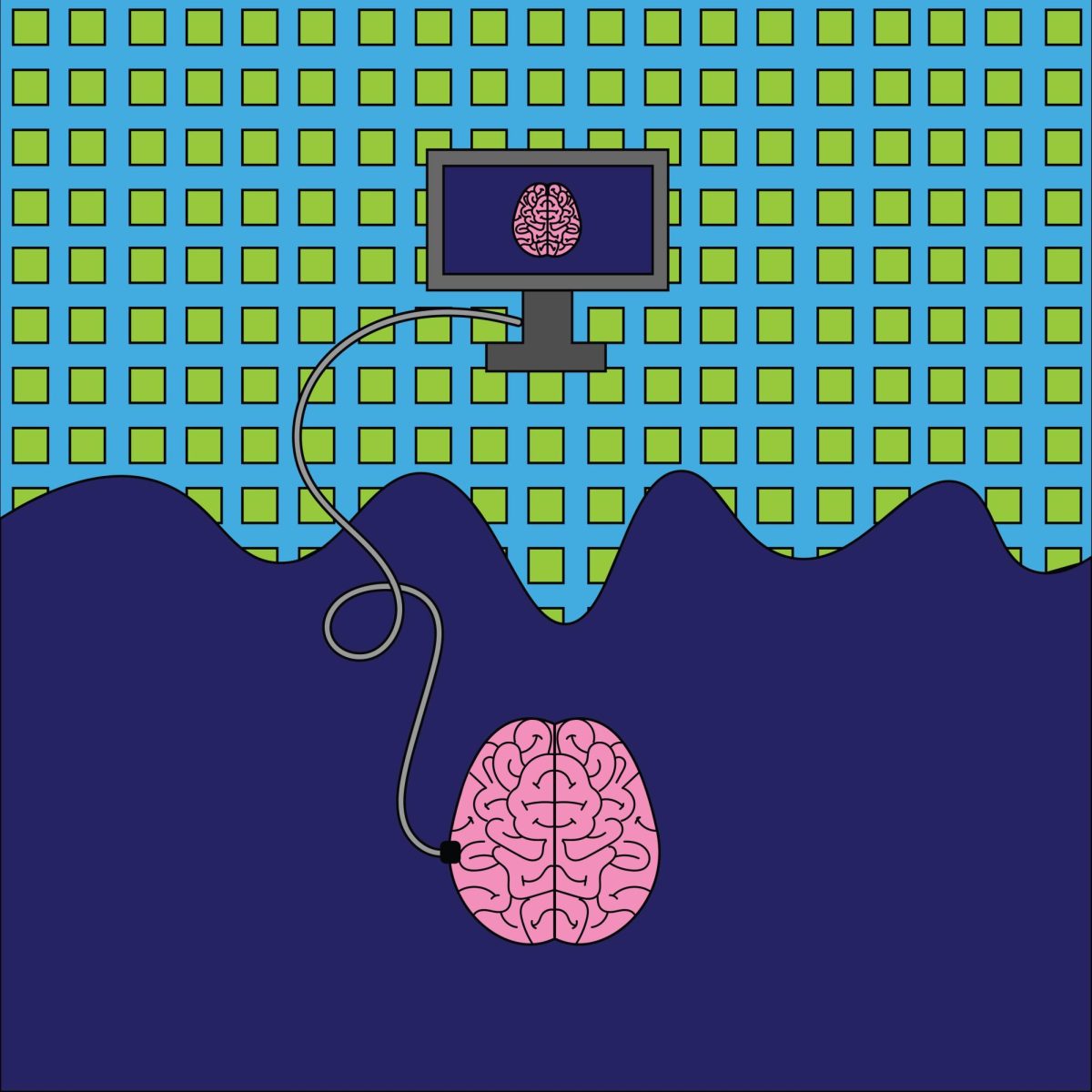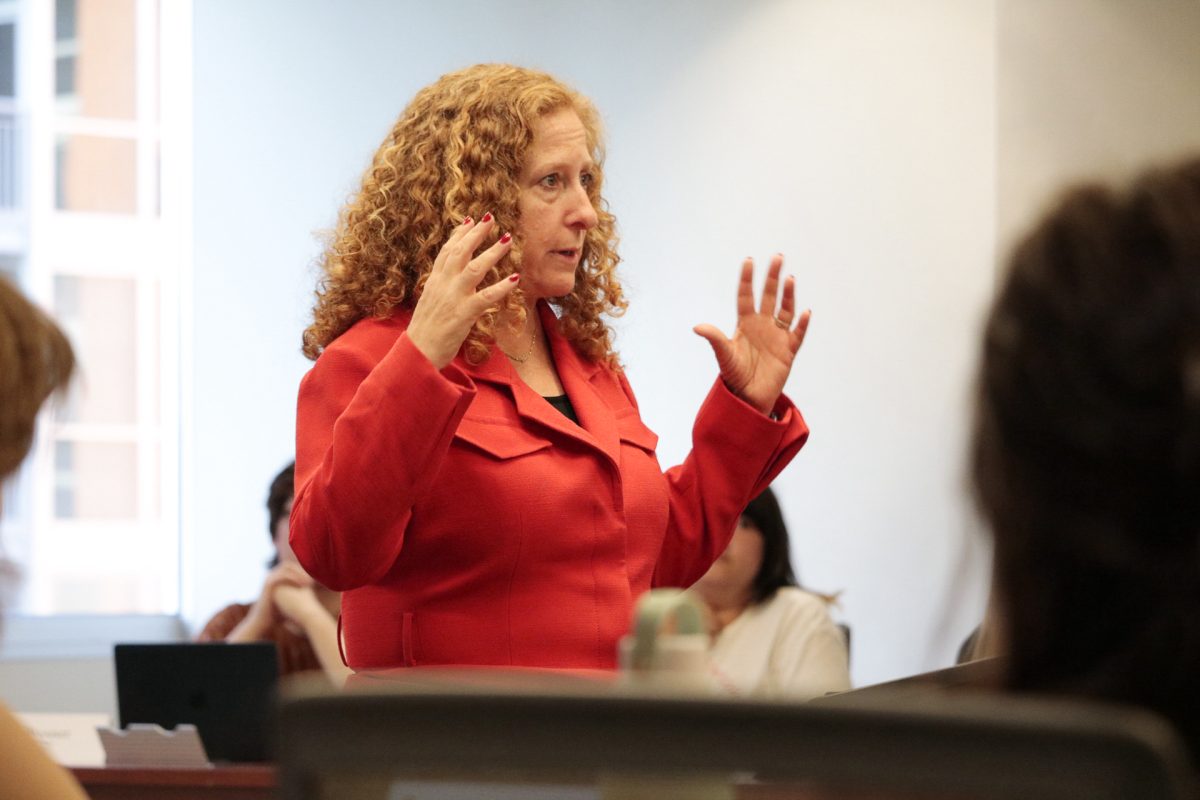Nearly two years after his resignation from the Board of Directors at AIDS Network and his co-founding of advocacy group ACT UP Wisconsin, Greg Milward is increasingly frustrated over the lack of communication and stonewalling against his efforts of advocating for change by the network.
“They won’t talk to me,” Milward said. “They say they’ve tried to address the issues but the depth of how far they have gone is questionable. I see signs they have made minimal attempts.”
AIDS Network is a nonprofit, Madison-based organization serving a 13-county region with 1,290 people living with HIV/AIDS.
Milward said AIDS Network is historically known for its great work with HIV/AIDS victims in the past, but now people living with AIDS are living longer and need direct services provided that focus on issues of living a full life with HIV/AIDS.
In his resignation letter to the agency, he detailed his disappointment with the agency’s failure to provide adequate direct services to clients as well as gross mismanagement of funds.
Milward was diagnosed with AIDS more than 11 years ago and moved back to Wisconsin in 2004 after 25 years of working with nonprofit organizations.
After becoming a volunteer with the AIDS Network, Milward was ultimately asked to join the Board of Directors.
“But then, there was total resistance to my attempts to effect change in what I thought were fundamental issues regarding management and the direction and sustainability of the organization,” Milward said.
He said he is looking for a more cohesive, heartfelt approach to HIV prevention. One of the deep, dark secrets of the region, he added, is the 15- to 25-year-old range is being affected in record numbers.
Milward said he does not see AIDS Network taking the lead in getting the message out, and with people living with HIV/AIDS living past their 50s and 60s, it was crucial for AIDS Network to be at the forefront of advocacy and transparency in its services.
It’s not just simply taking pills to survive, he said, but the side effects and manifestations of those issues as well.
Bob Bowers, also a co-founder of ACT UP Wisconsin, has been living with AIDS for more than 27 years and founded HIVictorious, Inc., a local nonprofit public benefit organization dedicated to education, prevention, advocacy and community mobilization.
“There needs to be oversight, accountability to where AIDS Network funds are going,” Bowers said. “Our issues with AIDS Network are more focused on disparity of services.”
He added people need to take a look at the differences between the AIDS Resource Center of Wisconsin providing services to people with HIV and AIDS in the northeastern part of Wisconsin, versus the services available through AIDS Network.
According to the most recent statistics for HIV/AIDS cases from the Wisconsin Department of Health and Human Services, there are 1,019,937 Wisconsin residents in the AIDS Network southern region and 1,116,521 residents live in the ARCW northeastern region.
Of that population, 1,290 people are living with HIV/AIDS in the southern region and 659 people living in the northeastern region.
The total operating expenses of AIDS Network in 2008 were $1,790,725 and the 2008 operating expenses for the ARCW northeastern region were $1,128,101, according to Milward.
He added the cost per client is 54 percent more in the AIDS Network southern region than in the ARCW northeastern region.
“They have a budget of nearly $2 million and they aren’t providing the direct services they should be,” Milward said. “So the obvious question is: Where are these funds going? And they won’t say.”
Karen Dotson, executive director for AIDS Network and former ARCW employee, was hired about a month before Milward resigned. She said it feels like ACT UP and particularly Milward are on a hate-campaign against the agency.
“I don’t know why they are coming after us; that’s why I call it a hate campaign,” Dotson said. “[Milward] never gave me a chance or opportunity.”
She added Milward had been part of the search-and-screen process to hire her, yet, in her mind, he had left too soon after she started to implement any changes or even get a grasp on how to go about bettering services for AIDS Network’s clients.
Dotson said in the past two years, AIDS Network has done great work increasing its services, despite many challenges, and she is very proud of her staff.
Due to the dietary constraints of people living with HIV/AIDS, food pantries are a common service provided to help supplement their needs.
Dotson said a food pantry was recently opened on-site at their Madison office to provide food three Wednesdays every month from noon to 6 p.m.
For participants to be applicable to the food pantry program, which serves approximately 200 people a year, they must be living under 300 percent of the federal poverty level, according to Dotson.
A mental health counselor was also hired to supplement their behavioral health services and has approximately 3.25 hours per week available for services.
There are also plans for a dental clinic in the works, which is planned to be open sometime next spring, Dotson said.
“That’s where the disparity comes in,” Milward protested. “You see all other HIV food pantries open full-time, five days a week, mental health services with more hours and dental health services directly on site. [AIDS Network] says they have addressed these issues, but they have only succeeded on putting a band-aid on the problems.”
Bowers was equally incredulous. He said with more than 33 million worldwide living with this deadly disease, people need to be educated, empowered, even need to be angry over the disparity of services, if that’s what it takes to have those services provided.
He agreed AIDS Network was doing good things for the community and added ACT UP and HIVictorious never said AIDS Network wasn’t, but it still needed to be held accountable.
“People in Green Bay are better taken care of. I feel betrayed,” Bowers said. “I wouldn’t trust my life to AIDS Network anymore or your life either. Not of anyone I care about. The issues are the ‘pink elephant’ in the room that no one is willing to talk about. But it’s come to the point where it can’t get any worse.”
Bowers speaks at schools to educate students on HIV/AIDS and its concerns and issues. He has held ‘What if it were you?’ contests, with support from Madison Mayor Dave Cieslewicz and U.S. Rep. Tammy Baldwin, D-Wis.
Bowers said that is what their movement is all about: showing people that “Silence equals Death” and “Action equals Life.” He said with the knowledge he has, he can’t afford to stay silent.
Dotson said it has been challenging for the network, but the improvements are obvious. She said the network works closely with the University of Wisconsin Hospital for behavioral health and other referred services.
“Madison is a very unique place. People in Madison support us and really appreciate our services; they like having their own [local group] instead of all being under ARCW, like [Milward] wants,” Dotson said.
She added AIDS Network is able to refer people living with HIV/AIDS out to other places for services that work closely with its organization and in this way they have other options.
She said they believe in a strong networking and collaboration with clients and not doing all the direct services that can be more effective other places with other Wisconsin providers.
“There are challenges anytime you go into an organization. I think there’s always room for improvement and that’s one thing that we’ve been really working on, that I’ve been working on to make sure it happens,” Dotson said.
As for funding, Dotson said most of it comes from the state as well as various foundations such as the United Way.
“When you think about where funding goes, some of that is having staff help with those direct services that we do provide and for food, for staff to assist and work with volunteers, and other stuff like paying for spaces,” Dotson said.
She added they have a lot of fundraisers to get additional funds, such as the ACT ride, which raised more than $300,000 this past year.
“That’s great and I was a huge supporter of the ACT ride,” Bowers said. “My wife and I were part of the crew. But again, where are those funds going?”
Dotson said she feels Milward and the group would only be happy if ARCW took over the southern part of the state and served Wisconsin exclusively. She added he has been vigorously campaigning against AIDS Network receiving funds from the state.
“I don’t care if ARCW comes in here,” Bowers said. “If that’s what it takes, fine. But I have no vested interest in whether it’s them or some other entity. It’s just about getting service and medical care that’s comparable to other areas of the state.”
Dotson said they have been bombarded with requests and e-mails from Milward. She said a meeting was set up with AIDS Network President Ellen Berz to meet with him and they thought it had gone well.
“Apparently, according to him, it didn’t. With all the requests and e-mails he sends us, if we responded to everything he wants, it would be like we’re working for him, you know?” Dotson said. “We just don’t have the time. It’s just an obsession, really just all this campaign is about.”
In a May 2009 article in The Isthmus, Bill Lueders said Dotson “pegs the ACT UP chapter as a handful of embittered dissidents.”
Dotson, however, denied this fact, saying she has never publicly labeled them as such.
“[Milward] keeps saying I’ve called him crazy. I have not said that to him so I’m not sure where he’s getting that from,” Dotson said. “If you look at the article in The Isthmus, you’ll see ’embittered dissidents’ was not part of my quote. No, I did not say that. That’s what that person pulled together from the conversations I had with them.”
She admitted to saying the controversy was more of a “turf-war,” but that the terms “crazy” and “embittered dissidents” had not come from her but were another way ACT UP was attacking her and the organization.
“It’s not about personality or criticizing people. I don’t care if they don’t like me. It’s about service. About getting people the things they need, that the network just isn’t providing,” Milward said. “When they start providing services, we will be the first to congratulate them. But good works from the past can’t correct the wrongs being done now.”
The office of Cieslewicz, Congresswoman Baldwin and Doug Nelson of ARCW did not respond to multiple requests for comment.













